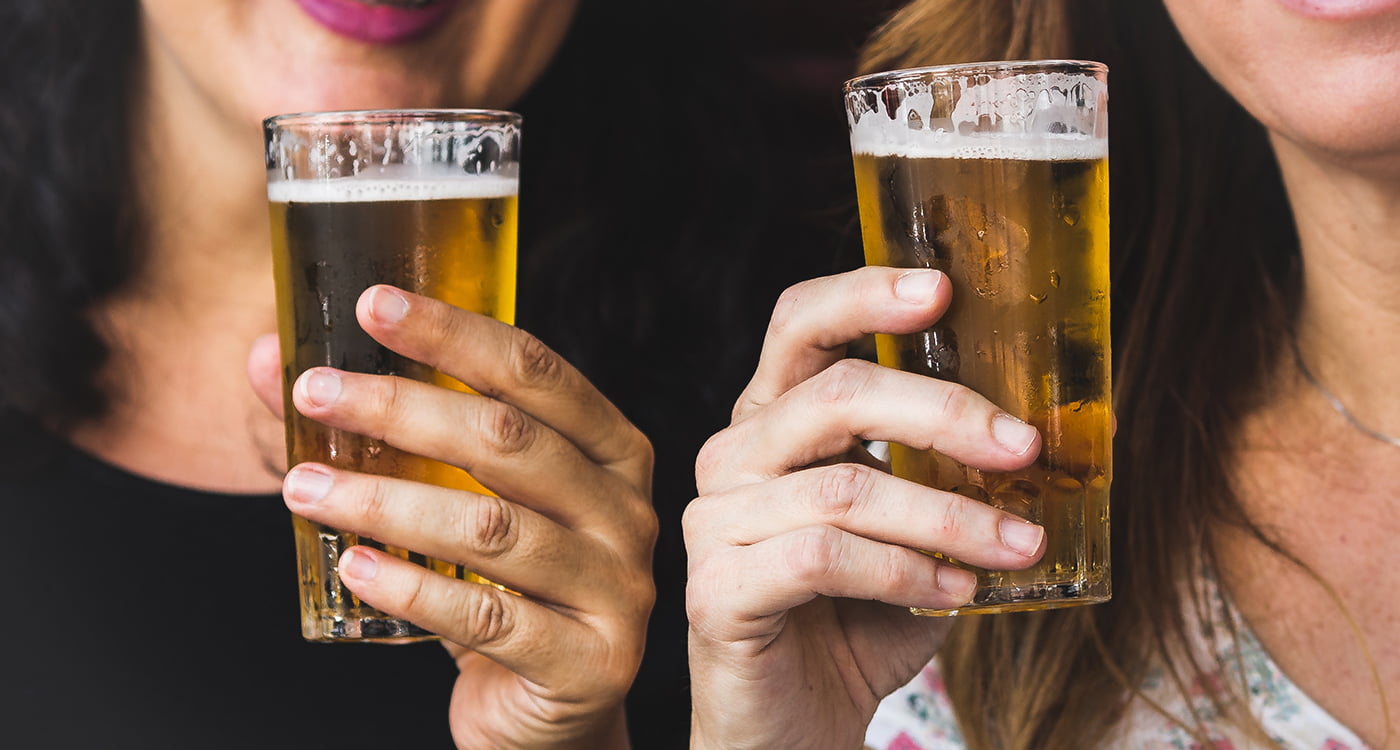Is any amount of alcohol safe for AFib patients?
Wine is known for its heart-healthy antioxidants, a beer with buddies can be a great end to a stressful week, and cocktails will liven up a party. But heart health can begin to suffer when you drink, and rhythm irregularities like AFib generally don’t mix well with alcohol.
There is an undeniable link between alcohol and atrial fibrillation, as this recent study confirms. It seems that even moderate alcohol consumption can trigger AFib symptoms, turn paroxysmal AFib to persistent AFib, and make it more likely that symptoms will recur after a heart operation. Doctors agree that any cardiovascular benefits that come with light drinking don’t extend to AFib patients.
It’s difficult to know how alcohol will affect your symptoms – a lot depends on the amount and frequency of your drinking, as well as your medical history and medication regimen. Should you avoid drinking altogether? Here are some things to consider before you make that call.

Alcohol’s impact on the heart
Although experts are still unsure how exactly alcohol interacts with heart function, there are some theories to explain the negative symptoms like heart palpitations and an erratic heartbeat. One has to do with the vagal nerve: this nerve that runs through the neck seems to respond to alcohol, and the more your drink, the more vagal nerve activity. This spike in vagal nerve response can spark an AFib event.
AFib symptoms can also come on when your fluid levels aren’t optimal, and alcohol can easily lead to such a situation. Since alcohol is a diuretic, it helps your body eliminate more water, and that can leave you dehydrated. At best, dehydration is uncomfortable; at worst, it can stress your organs, deplete your mineral levels, and ultimately trigger AFib.
Just as different medications can interfere with each other, alcohol can interact with the drugs you take to manage your AFib. Vitamin K antagonists like warfarin or acenocoumarol are particularly problematic when they meet alcohol: these blood-thinning medications can increase your risk of bleeding when you drink. Alcohol use can also cause warfarin to build up in the body , which may bring on another set of complications.
What are the guidelines for AFib patients?
Since there seems to be a direct connection between AFib and alcohol, the American Heart Association recommends that if you don’t drink already, don’t start. However, some people may be able to imbibe now and then, as long as their health history and heart symptoms agree with it. The key is to speak with your doctor about any concerns and be honest about your symptoms – this will help determine if you can have a drink or if you’d do better to avoid it altogether.

Finding a balance
Heavy drinking and AFib are a bad combination – three or more drinks a day significantly increases your risk of an episode, and for every drink on top of that, your risk climbs another 8% . If you drink moderately (two drinks a day for men, or one drink a day for women), you might be alright, but your doctor may still suggest you cut down a bit.
If you want to include alcohol in your diet without drastically raising your risk of an AFib reaction, keep these tips in mind:
Take drink-free days. Binge drinking is definitely a bad idea, but even moderate drinking every day could contribute to AFib. Experts recommend taking two or three dry days a week to relieve the stress on your liver and your heart. Is water too boring? Fill a box with a variety of herbal teas and keep it on the counter so there’s a selection of flavors to choose from, which can keep things interesting.
Pay close attention to your numbers. When you live with a heart condition, you need to pay extra close attention to your body. This means not only watching for symptoms, but also checking key levels. Since alcohol increases blood pressure, which can interfere with heart function, commit to using a blood pressure monitor when you have a drink or two. If the numbers are high, that’s a sign to switch to water.
Top up your fluids and minerals. Alcohol encourages your kidneys to draw water from your tissues and pass it out of your body. But you’re losing more than water: important minerals like sodium and potassium, crucial for proper organ function, will drain out, too. Without these electrolytes, heart function will falter, so you’ll want to top your levels up with water and nutritious food. Sports drinks can be helpful, but they can contain a good deal of sugar, so go easy.
Pass on the nightcap. Good sleep directly impacts your stress levels, and the frequency and severity of AFib episodes. It follows that poor sleep can cause health problems, and alcohol can easily disrupt natural sleep patterns. An evening drink can calm you down in the moment, but it will boost your metabolism during the night, while your body tries to process the energy. That could translate into lots of tossing and turning, and more uncomfortable symptoms in the morning.
Moderation is key. Alcohol intake clearly affects your chances of experiencing AFib symptoms, so it makes good sense to take steps to reduce your drinking. Why not take the opportunity to examine your whole diet, and see what else could do with an adjustment? After making a couple of additions or subtractions, you could start to notice some pleasant changes in your energy levels and quality of life in a matter of weeks.
